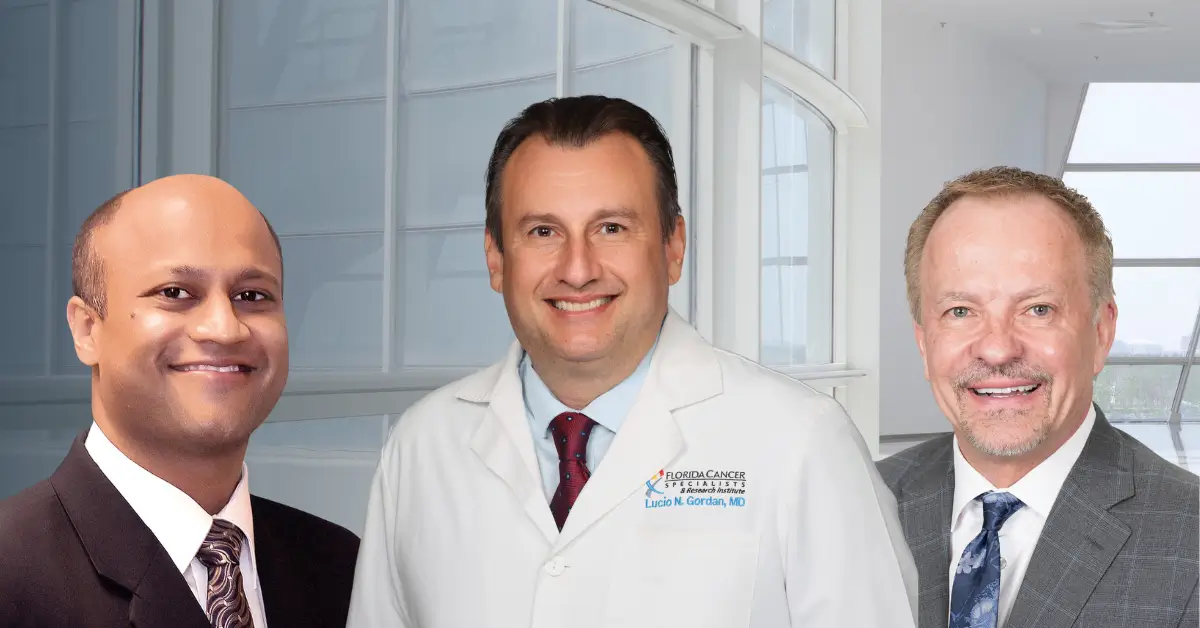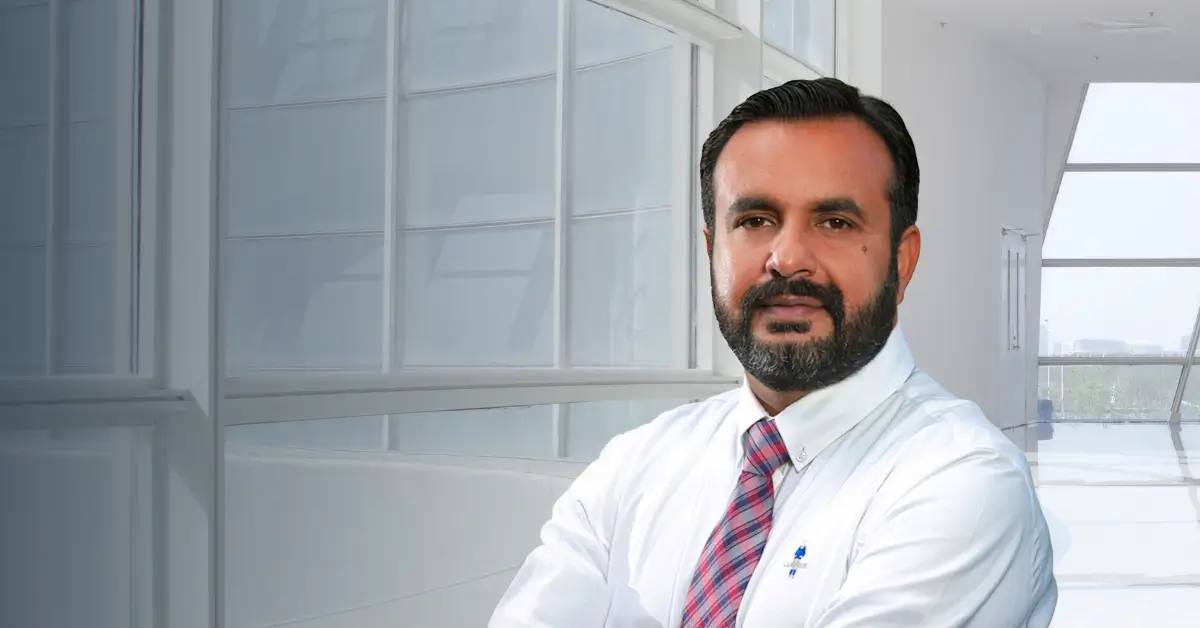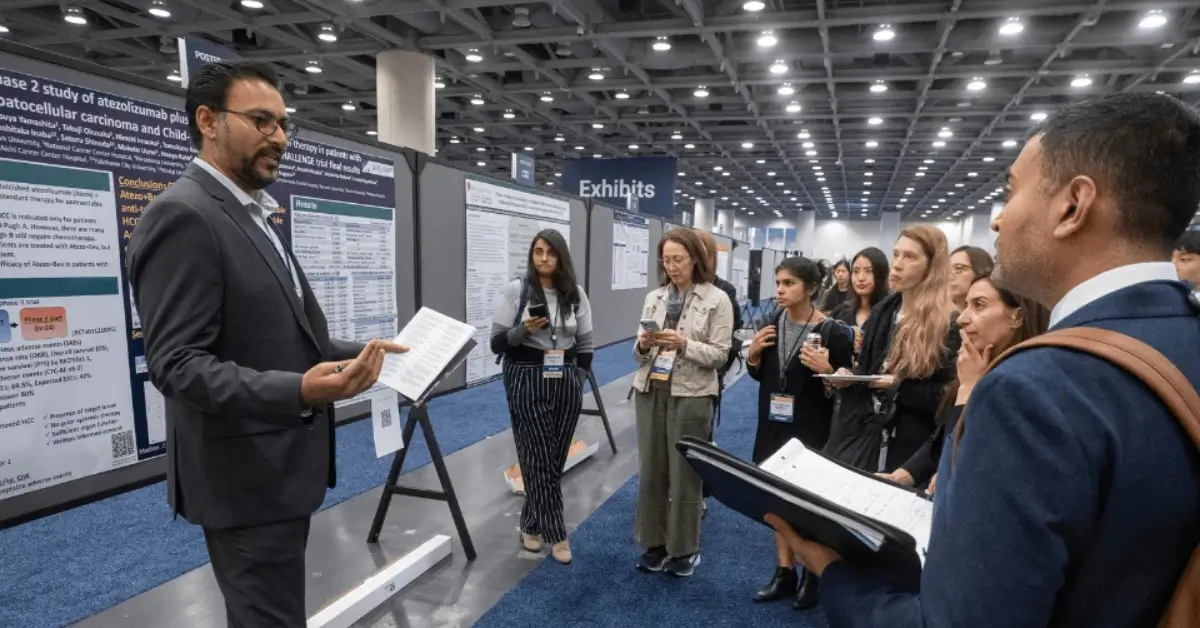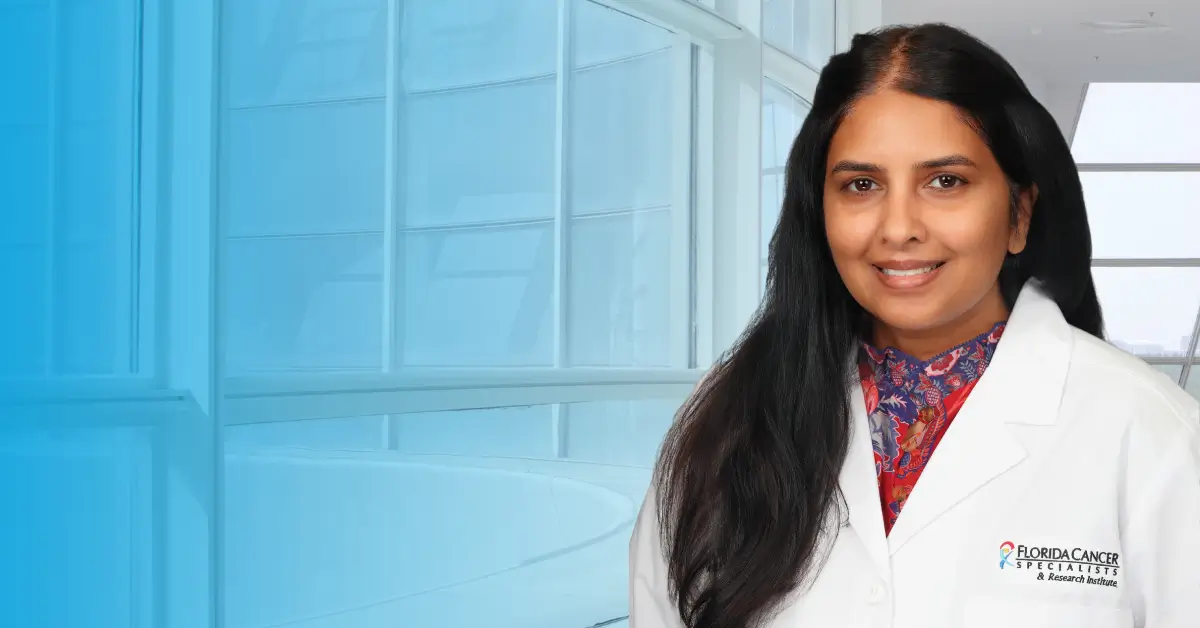FCS Physician Leaders Examine Best Practices To Improve Speed, Efficiency & Reduce Cost In Bringing Anti-cancer Medicines to Patients

Florida Cancer Specialists & Research Institute Physician Leaders Examine Best Practices To Improve Speed, Efficiency & Reduce Cost In Bringing Anti-cancer Medicines to Patients
Fort Myers, Fla., October 2, 2025 — Florida Cancer Specialists & Research Institute, LLC (FCS) Medical Director of Late Phase Clinical Research Bradley Monk, MD, Medical Director of Drug Development Manish Patel, MD and President & Managing Physician Lucio N. Gordan, MD are co-authors of a manuscript aimed at educating key stakeholders about how medications used to treat cancer move from development to the clinic and the processes in place to accelerate drug discovery and regulatory approval.
The manuscript, “Development of Anti-cancer Medicines in the Current Era,” published in Cancer Treatment and Research Communications, summarizes and synthesizes best practices in developing and delivering anti-cancer medicines to patients who need them, integrating guidance from the U.S. Food and Drug Administration (FDA).
While clinical trials are crucial for introducing groundbreaking new therapies, the authors note that sponsors may lack the expertise to bring them to patients. Dr. Monk said, “The successful development of anti-cancer medicines is arduous and highly technical. Our manuscript reviews the process and creates a clear roadmap to guide sponsors to design and execute oncology studies that lead not only to technical success, but to FDA approval as well.”
In the U.S., the FDA’s Oncology Center of Excellence unites experts to expedite the review of cancer and blood cancer treatments. The authors state, “Paramount to the successful development of anti-cancer agents is access and efficient trial design and quality execution.”
“Increasing access to clinical trials is key,” said Dr. Patel, who oversees early-phase trials conducted at FCS’ three Drug Development Units. “While university-based centers have traditionally led drug development, over 80% of cancer patients in the U.S. receive care in their own communities, driving a growing shift toward conducting clinical trials in community settings.”
Dr. Gordan noted, “At FCS we continuously seek to expand patient access to cutting-edge therapies and accelerate the development of lifesaving treatment. With more than 160 clinical trials ongoing within our statewide network, FCS is at the forefront of enhancing patient access to new cancer drugs close to home.”
Additionally, as discussed in the abstract, Dr. Monk emphasized, “Encouraging diverse participation in clinical trials ensures that medical advancements benefit everyone. When trial participants reflect the patients who will use these treatments, we take an important step toward health equity and more effective care for all.”
The authors concluded, “Conducting clinical research is challenging, but bringing new treat- ments to those fighting cancer is foundational to everyone’s goal of improving the patient experience to live longer and better through innovation… The FDA has established well-defined guidelines to streamline early phase studies, to ensure the identification of the optimal drug, and personalized dose for the appropriate patient population (biomarker). Furthermore, the principles of “proof of concept” studies are now clearly outlined, providing a solid foundation to justify substantial investments in late-phase randomized trials.”
View the abstract: https://doi.org/10.1016/j.ctarc.2025.101002





Comments